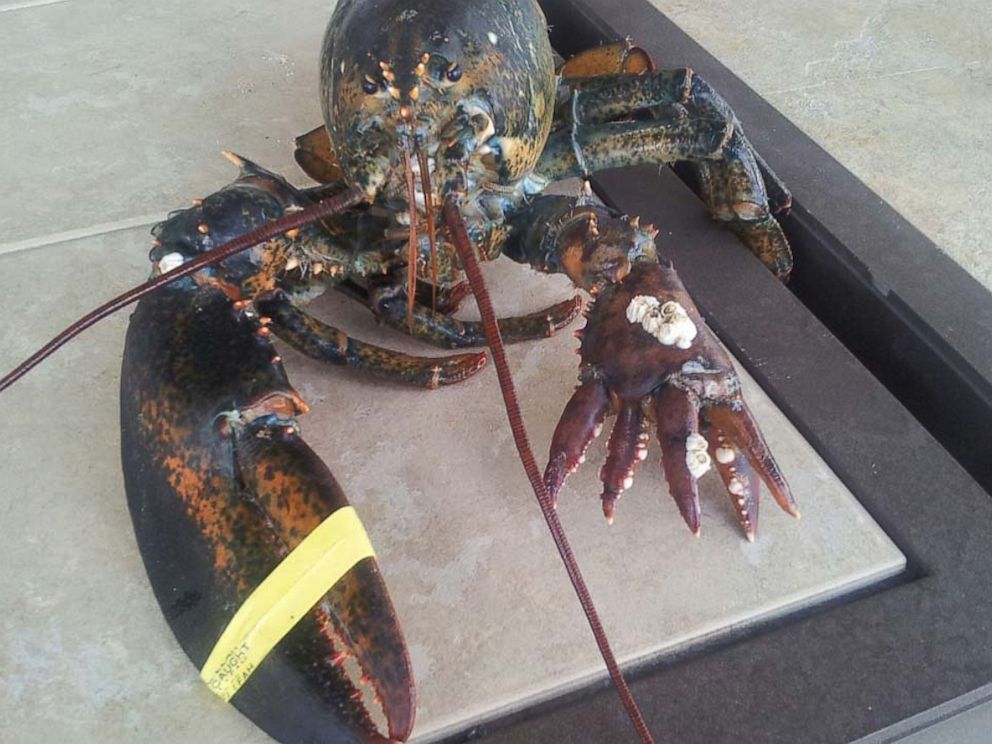Lobsters are incredible creatures, equipped with muscular claws capable of exerting tremendous force. Their powerful pincers surely demand respect. But just how hazardous are those snapping claws? Let’s examine whether a lobster can actually cut off your finger.
The Strength of Lobster Claws
To crack open shells and capture prey, lobsters employ two specialized claws with different functions
-
Crusher claw – The larger crusher claw can apply up to 100 pounds per square inch of pressure. Compare this to a human’s grip strength of only 30 PSI! This extreme force allows lobsters to break apart hard shells.
-
Cutter claw – The smaller, sharper cutter claw tears into soft tissue and can slice firmly into things Its sharp tip concentrates cutting force into a small area.
So both claws have their own fearsome capabilities. The crusher claw’s brute strength combined with the cutter claw’s shearing edge make lobster pincers dangerous, no doubt.
Severing Potential of Lobster Claws
Given their tremendous pinching power, can a lobster’s claws actually sever a human finger?
-
Yes, under certain rare circumstances, a lobster claw can cut off a finger. Cases of finger loss due to lobster pincers have been documented.
-
However, the chances of this occurring are relatively low. Lobster-related finger amputation is an extremely uncommon event.
-
Large, old lobsters with bigger claws pose the greatest hazard in terms of cutting potential.
-
Still, all lobsters warrant careful handling as their claws can certainly inflict injury when pinching with full force.
So while lobsters can’t slice off fingers effortlessly, underestimating their claws’ severing ability is unwise. Appropriate care is required when handling live lobsters.
Why Lobsters Can Injure Humans
Lobsters have evolved formidable claws for the purposes of:
-
Defense – Their primary instinct is to protect themselves from perceived threats by pinching. Humans trying to grab them may trigger this response.
-
Catching prey – Lobsters use their pincers to crush shells and grasp food. Our soft flesh is no match for claws designed to demolish hard shells.
-
Establishing dominance – Aggression and fighting among lobsters determines social ranks. Claws are weapons to prove their status and strength.
Basically, lobster claws are not designed to sever human limbs. But when humans put fingers near snapping pincers, severe injury can unintentionally occur due to the extreme power of lobster claws.
Precautions When Handling Lobsters
To stay safe when handling live lobsters:
-
Wear cut-resistant gloves to protect hands and fingers.
-
Grip lobsters from behind, avoiding the sharp points of their claws.
-
Use tongs or other tools to keep hands away from pincers when possible.
-
Store lobsters with pincers banded until ready to dispatch humanely.
-
Work slowly and gently to keep lobsters calm. Avoid agitating them.
-
Focus full attention on the lobster – no distractions that could lead to accidents.
With proper care, respect for their claw strength, and responsible handling techniques, the chances of getting injured by a lobster are greatly reduced.
Treating Lobster Claw Injuries
If you do suffer a pinch or cut from a lobster claw:
-
Wash the wound immediately with soap and clean water to prevent infection.
-
Apply antibiotic ointment and cover with a sterile bandage.
-
Elevate the injured area to reduce swelling.
-
Take over-the-counter pain medication as needed.
-
Seek medical care for severe cuts, bleeding, or persistent pain.
Though lobster claws can theoretically cut off a finger, prompt first aid makes this extremely unlikely. Still, it’s smart to monitor any lobster claw injury closely and get professional treatment if the wound seems severe.
Cooking Lobsters Safely
When preparing live lobsters:
-
Avoid direct contact with claws and keep fingers away from bands. Use tongs and gloves.
-
Chill lobsters in the refrigerator or freezer before cooking to slow movement.
-
Dispatch humanely by quickly plunging headfirst into boiling water.
-
Remove bands only after lobsters are fully cooked and claws immobilized.
With proper cooking techniques, you can safely enjoy tasty lobster without worrying about claws snapping at fingertips.
Respect the Lobster Claw
While a severed finger is improbable, lobsters claws absolutely warrant your respect. Follow safe handling practices and use good judgment when dealing with live lobsters. Then you can fully appreciate these incredible crustaceans without fear of losing a digit! Handle with care and enjoy your lobster.

Can a Mudcrab cut off your finger?
Can a lobster cut your finger off?
If, for any reason, our finger ends up in lobsters’ claws, it’ll hurt, but lobsters most likely neither cut our fingers off nor crush our bones. Lobsters could also possibly hurt us with their mandible (jaw-like structures), or spiny lobsters could cut our skin with their spines.
Can a lobster cut your skin off?
The mandible is capable of crushing the shells of lobsters’ food, so it could definitely cut some of your skin off. It happened to Alek Loudakis of Martin County during diving, where a lobster nipped off the tip of his finger. Can lobsters sting you? The next thing that could possibly be a danger for us and lobsters’ predators are stings.
Do lobsters’smell’ with their feet?
Lobsters ‘smell’ with their feet! Contrary to what we see in cartoons, lobsters use their claws for much more than just pinching! Lobsters can be left-‘handed’, right-‘handed’ or ambidextrous, and have several receptors on their claws and their legs, which they use to locate and recognise any food that is around them.
Are lobsters dangerous to humans?
In this article, we’ll talk all about it but let’s begin with a quick answer: Lobsters aren’t very dangerous to humans, but they can cause us some pain if we get too close. If, for any reason, our finger ends up in lobsters’ claws, it’ll hurt, but lobsters most likely neither cut our fingers off nor crush our bones.
